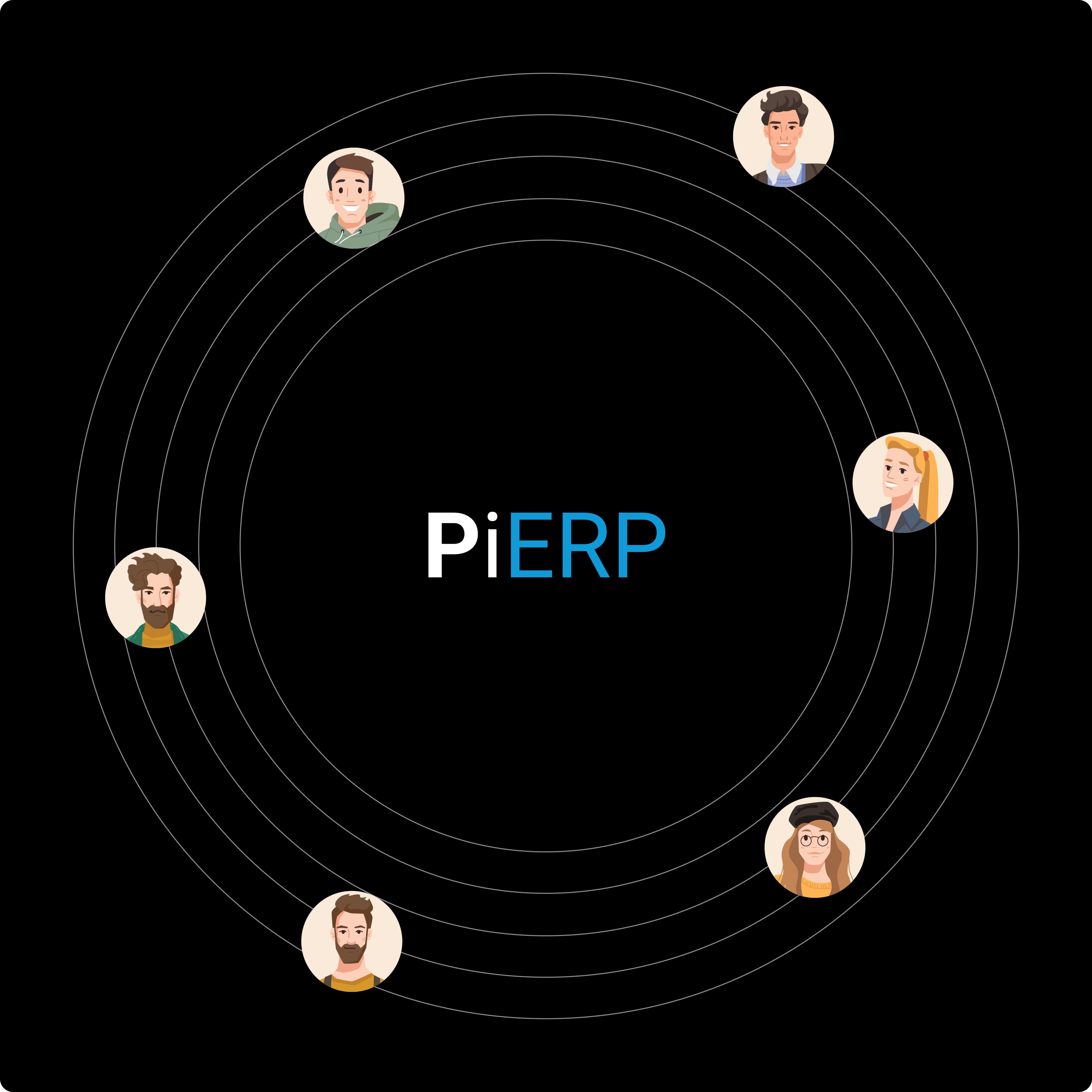Enterprise Resource Planning (ERP) systems are the backbone of modern businesses, integrating various functions like finance, human resources, supply chain, and production. While ERP solutions bring efficiency and data centralization, they also become prime targets for cyber threats. Protecting your custom ERP software from security breaches is crucial for maintaining business integrity and customer trust. PiERP offers advanced security solutions to safeguard your ERP system from potential cyber risks.
Why ERP Security Matters
ERP systems contain sensitive business data, including financial records, customer information, and operational insights. A security breach can lead to:
- Financial Losses: Data theft or ransomware attacks can severely impact revenue.
- Operational Disruptions: Cyberattacks can halt essential business processes.
- Reputation Damage: A security breach can erode customer trust and credibility.
- Compliance Issues: Many industries must adhere to strict data protection regulations.
Given these risks, businesses must prioritize cybersecurity to protect their ERP solutions from malicious attacks.
Common Cyber Threats to ERP Systems
1. Phishing and Social Engineering
Hackers often trick employees into revealing login credentials through deceptive emails or messages.
2. Malware and Ransomware
Malicious software can infiltrate ERP systems, encrypting data and demanding ransom payments for recovery.
3. Unauthorized Access
Weak authentication methods can lead to unauthorized individuals accessing critical business data.
4. Data Breaches
A lack of encryption or poor access controls can result in data leaks, exposing sensitive business information.
5. Internal Threats
Employees with access to sensitive data can intentionally or unintentionally cause security breaches.
How to Secure Your Custom ERP Software
1. Implement Multi-Factor Authentication (MFA)
MFA adds an extra layer of security by requiring users to verify their identity through multiple authentication methods before accessing the ERP system.
2. Regular Security Audits
Conducting frequent security assessments helps identify vulnerabilities and ensures compliance with security protocols.
3. Data Encryption
Encrypting stored and transmitted data protects sensitive business information from unauthorized access.
4. Role-Based Access Control (RBAC)
Limit user access to only the necessary modules based on their roles, reducing the risk of unauthorized data access.
5. Automated Security Updates
Ensure your ERP system is updated regularly with the latest security patches to prevent exploitation of vulnerabilities.
6. User Training and Awareness
Educating employees on cybersecurity best practices can help mitigate risks related to phishing and social engineering attacks.
7. Disaster Recovery and Backup Solutions
Implement robust data backup strategies to ensure quick recovery in case of cyber incidents.
How PiERP Ensures ERP Security
PiERP offers cutting-edge security features to protect your ERP software, including:
- Advanced Encryption Protocols: Safeguards data against breaches.
- AI-Powered Threat Detection: Identifies and mitigates cyber threats in real time.
- Secure Cloud Hosting: Provides a secure infrastructure with built-in security measures.
- Customizable Security Policies: Tailor security settings to fit business-specific needs.
Conclusion:
Cybersecurity in ERP is not optional—it’s a necessity for protecting sensitive business data, ensuring compliance, and maintaining customer trust. By implementing best security practices and leveraging PiERP for a secure ERP environment, businesses can safeguard their operations from potential cyber threats.
Ready to strengthen your ERP security? Explore PiERP and protect your business from evolving cyber risks today.






